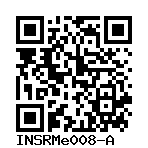STR-I-203-CFTR
INSRMe008-A
General
Cell Line |
|
| hPSCreg name | INSRMe008-A |
| Cite as: | INSRMe008-A (RRID:CVCL_C085) |
| Alternative name(s) |
STR-I-203-CFTR
|
| Cell line type | Human embryonic stem cell (hESC) |
| Similar lines |
|
| Last update | 4th September 2022 |
| User feedback | |
Provider |
|
| Generator |
INSERM (INSRM)
Contact:
Ontogeny of primordial germ cells |
| Derivation country | France |
External Databases |
|
| Cellosaurus | CVCL_C085 |
| Wikidata | Q54970611 |
General Information |
|
| Publications | |
| * Is the cell line readily obtainable for third parties? |
Yes |
Donor Information
General Donor Information |
|
| Sex | female |
Phenotype and Disease related information (Donor) |
|
| Diseases | A disease was diagnosed.
|
Ethics
| Was the embryo established purely for research purposes? | No |
| Have both parents consented to the use of the embryo for ESC derivation? | Yes |
| Has informed consent been obtained from the donor of the embryo/tissue from which the pluripotent stem cells have been derived? | Yes |
| Was the consent voluntarily given? | Yes |
| Alternatives to consent are available? | Yes |
| Alternatives to consent | |
| Alternative consent approval number | |
| Please indicate whether the data associated with the donated material has been pseudonymised or anonymised. | anonymised |
| Does consent explicitly allow the derivation of pluripotent stem cells? | Yes |
| * Does consent expressly prevent the derivation of pluripotent stem cells? | No |
| How may genetic information associated with the cell line be accessed? | |
| Will the donor expect to receive financial benefit, beyond reasonable expenses, in return for donating the biosample? | No |
| Has a favourable opinion been obtained from a research ethics committee, or other ethics review panel, in relation to the Research Protocol including the consent provisions? | Yes |
| Name of accrediting authority involved? | |
| Approval number |
hESC Derivation
| Embryo stage | Blastula with ICM and Trophoblast |
| PGD Embryo? |
Yes |
| ZP removal technique | Enzymatic |
Culture Conditions
| Surface coating | Gelatin | |||||||||
| Passage method | Mechanically | |||||||||
| CO2 Concentration | 5 % | |||||||||
| Medium |
Other medium:
Base medium: Knockout-DMEM
Main protein source: Knock-out serum replacement Serum concentration: 20 % Supplements
|
Characterisation
Differentiation Potency
Microbiology / Virus Screening |
|
| HIV 1 | Negative |
| HIV 2 | Negative |
| Hepatitis B | Negative |
| Hepatitis C | Negative |
Genotyping
Karyotyping (Cell Line) |
|
| Has the cell line karyotype been analysed? |
Yes
46XX
Passage number: 14
|
Other Genotyping (Cell Line) |
|


Login to share your feedback, experiences or results with the research community.